21/11/2022
Petro’s concept of “total peace” goes beyond negotiations with illegal armed groups. Andrei Gómez-Suárez and Margarita Ermini* argue that the new policy signals a paradigm shift in peacebuilding.
Gustavo Petro, former Senator and mayor of Bogotá, and once member of the M-19 guerrilla, was invested as President of Colombia on 7 August 2022 after winning a contentious election on 19 June. One hundred days into office, his approval ratings are 61% in opinion polls. His coalition in Congress has passed the “total peace law”, which he signed into law on 4 November 2022, allowing him to start formal negotiations with the ELN and other groups. His concept of “total peace”, however, goes beyond negotiations with illegal armed groups.
Total peace is not possible without social, economic and environmental justice
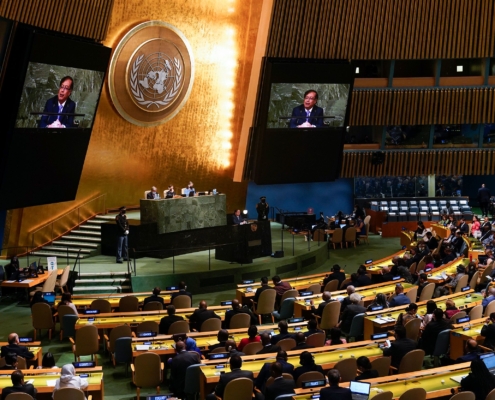
(Source: CNN)
On 20th September 2022, during his first speech at the United Nations Annual General Assembly, President Petro declared that “total peace will not be possible without social, economic and environmental justice.” This idea of a holistic approach toward resolving the Colombian conflict is indicative of a new peace paradigm arising in Colombia.
The concept of total peace, first coined by Senator Iván Cepeda, goes further than previous, mostly bilateral, attempts by successive Colombian governments to put an end to its conflict with several illegal armed groups, including the United Self-Defence Forces of Colombia (AUC), the Revolutionary Armed Forces of Colombia (FARC), and, most recently, the National Liberation Army (ELN). With Petro’s electoral victory, many spectators viewed negotiations with the ELN as an imminent item on his administration’s agenda, but the administration has insisted that negotiating with just one armed actor is insufficient, hence the notion of ‘total peace’ which seeks to encompass all remaining armed groups.
If Colombia is to indeed put its history of armed conflict in its past, not only must every armed actor willing to enter negotiations with the government be included in this broadened scope of peace, but we must also extend our understanding of what peace constitutes at its very essence. We cannot simply consider the cessation of hostilities and physical violence as sufficient in terms of scope. Instead, we must consider ways of minimising both cultural and structural forms of violence.
Petro’s invoking of social, economic and environmental justice is critical to comprehending peace as an all-encompassing, comprehensive strategy, one that addresses issues related to the economy and the environment, as well as security, culture, justice, education, development and geopolitics, amongst others. According to this new paradigm, these issues are interlocking, and must therefore be addressed in a cross-cutting and simultaneous way; we cannot simply consider economic grievances in Colombia without also accounting for issues such as the environment, justice, or education. The Colombian conflict requires solutions that tackle these issues in parallel, and they must be addressed within the same conversations.
Total peace is geopolitical
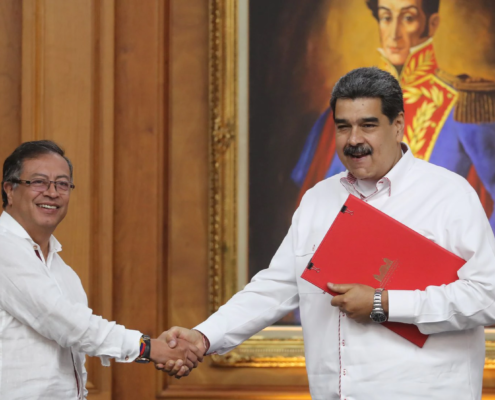
(Source: El País)
Following the signing of the 2016 Peace Deal with the FARC, power vacuums were left which were filled by other armed groups. Making peace with solely one group while not addressing the conditions that enable violence to continue risks fragmenting armed groups into smaller units, and propagates the never-ending cycle of violence. To resolve this issue, a new perspective is needed: not just to engage in negotiations with armed groups, but to do so in parallel with addressing the underlying structural causes of the conflict, such as socioeconomic inequalities and absence of the state, as these are intertwined with the actions of conflict actors.
The concept of total peace cannot ignore the geopolitical dynamics that surround and influence the conflict, particularly, the implications that the policy has for Colombo-Venezuelan relations. Groups such as the ELN and the Segunda Marquetalia, a splinter group of the FARC led by former chief negotiator Iván Márquez who decided to take up arms again in 2019, have a well-established presence in Venezuela. These groups impact the lives of communities on both sides of the border, and many combatants are Venezuelan nationals. Peace in Colombia, therefore, is dependent on the dynamics of what is happening in Venezuela.
The Colombia-Venezuela border recently reopened after remaining partially shut for seven years. A peace process that involves Venezuela offers a rare opportunity to allay tensions in diplomatic relations. Bilateral collaboration could help to resolve the conflict that has caused catastrophic effects on the communities on both sides of the border. A process that excludes Venezuela lays itself bare to the risk of long-term spoilers in Venezuela. Total peace challenges us to go beyond the concept of sovereignty and confront conflict in its entirety, and recognise its transnational nature.
Total peace addresses the past whilst looking towards the future
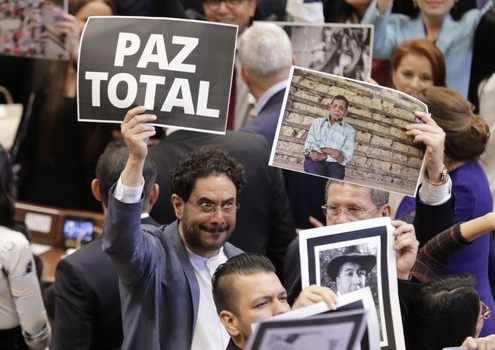
(Source: El Espectador)
Arguably, total peace is the most ambitious strategy to be put in place in Colombia to seek to end the conflict. There have been positive gains throughout previous peacebuilding attempts, which total peace builds on. One example is the recent work of the Truth Commission, which opened spaces for victims to share their testimonies, and has now published a report with a set of recommendations aimed at guaranteeing non-repetition of the conflict, which Petro has committed to implementing as part of his total peace policy. Additionally, thousands of former combatants have demobilised, most recently ex-FARC combatants, and are reincorporating into their communities.
Nevertheless, there have been many failures in previous attempts to end the conflict, evident in the fact that violence has continually been recycled over the years. Widespread scepticism about successive governments’ abilities or willingness to implement peace agreements and policies has in turn contributed to the failure of such strategies, such as the rearming of former combatants who perceive the state as not fulfilling the peace accord. For this reason, Senator Cepeda has stressed the importance of fully implementing the 2016 Peace Deal as a fundamental pillar of the total peace policy, in order to regain the confidence of different stakeholders.
Total peace is a paradigm shift in peacebuilding
A total peace policy that seeks to end hostilities with over a dozen groups; that considers environmental, economic, cultural, development and security issues amongst others; that must be discussed with grassroots communities, conflict actors, and state officials at all levels, is both highly ambitious and deeply challenging. To understand this far-reaching, unprecedented approach of combining conflict resolution with broader peacebuilding, we have to depart from traditional, linear thinking (A leads to B which results in C) and from existing solutions that have already been attempted. We must adopt what Monseñor Darío de Jesús Monsalve, Archbishop of the city of Cali, calls a “lateral” way of thinking: an unconventional, non-methodical way of analysing and approaching an issue. Instead of imagining peace as something achieved by a series of predictable steps, we must use our creativity to address the conflict on all of its levels at the same time. This is ambitious, but if we are to end the continuous cycle of violence in Colombia, we must dare to imagine what we consider impossible as, in fact, possible.
ABOUT THE AUTHOR
Margarita Ermini is a pseudonym.

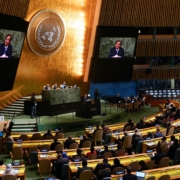
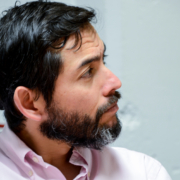
 El_Espectador
El_Espectador
Leave a Reply
Want to join the discussion?Feel free to contribute!